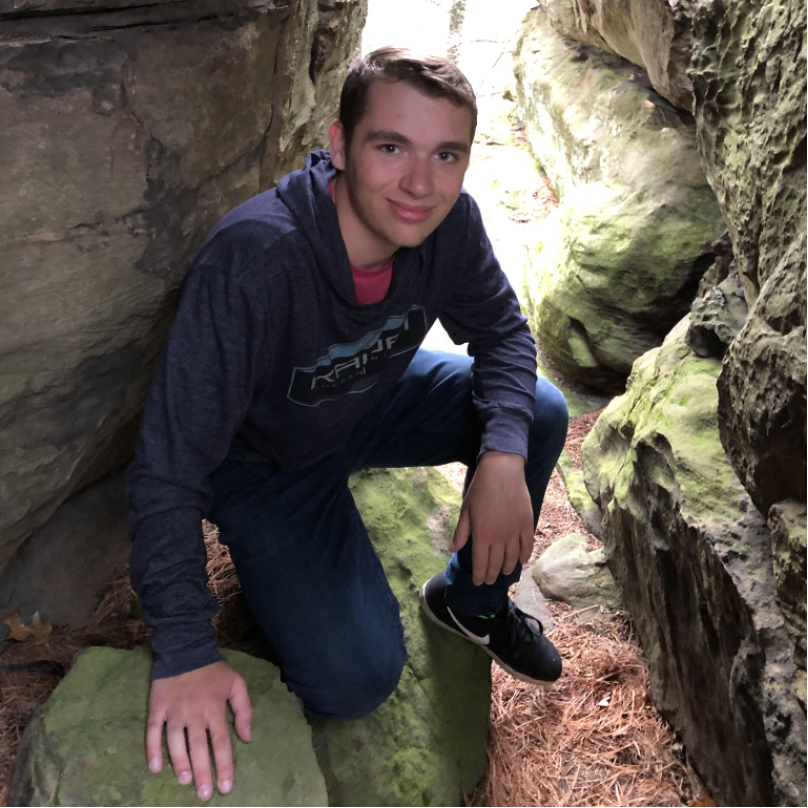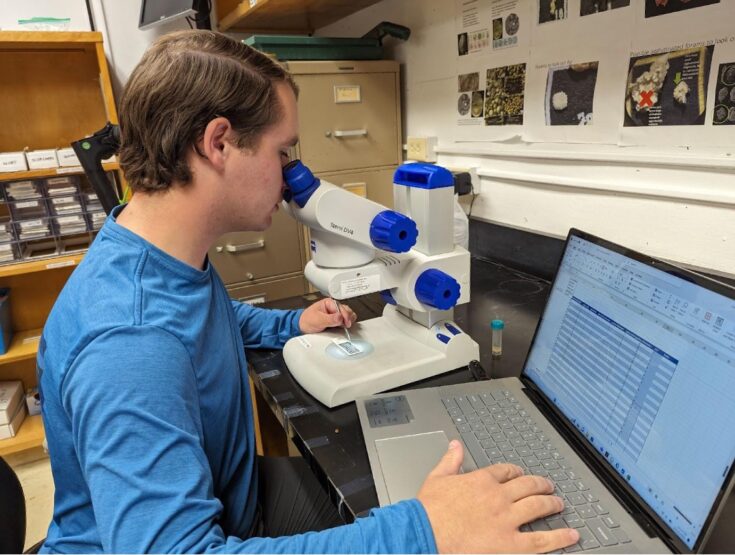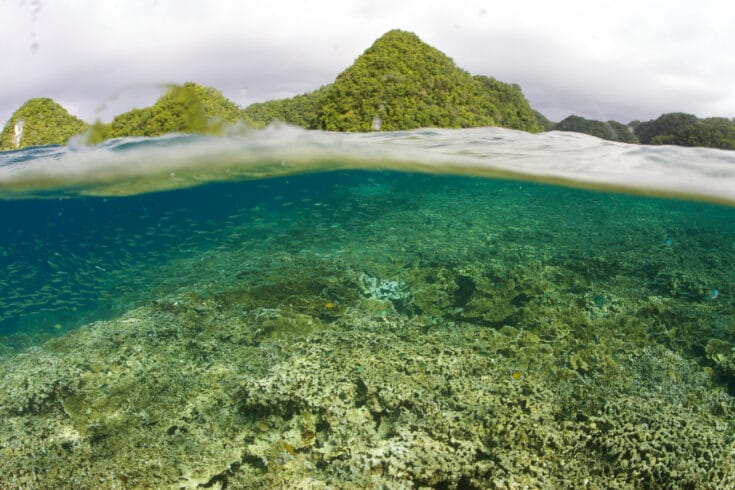
Today’s guest blog comes from Zachary Adams, an undergraduate research assistant at the University of Miami working on our Protist Prophets project. The project, funded by the National Science Foundation, uses foraminifera found in sand samples we collected on the Global Reef Expedition to assess the long-term health of coral reefs.
My name is Zachary Adams, and I am one of the undergraduate research assistants at the University of Miami working on the Protist Prophets project. I am a sophomore studying Marine Science and Geology, and I am minoring in Geospatial Technology. I joined the project in October 2022 with no prior research experience. For most of the year, I picked foraminifera out of the project’s many sediment samples. I also learned how to organize and glue the forams for later identification and analysis, in addition to sieving and preparing the samples for picking.

This year, my focus has shifted towards the research portion of the project. I work very closely with Dr. Alex Humphreys and Dr. Akos Kalman identifying and logging the foram genera and test conditions. As the project moves into the analysis phase, I am excited to explore what we can learn about tropical coral reef health from our dataset.
I have been fascinated by the natural and geological world for my whole life, and I am very grateful for the opportunities which have allowed me to study this, especially this lab. Since I joined, I have become a more confident and competent scientist, and I look forward to what foraminifera are able to tell us about the health of coral reefs around the globe.

Protist Prophets
This project takes a microscopic look at seabed samples collected on the Global Reef Expedition to assess the state of the coral reef environment over time. The samples we collected should allow us to look back at the health of these coral reef ecosystems over the past 1,000 years.